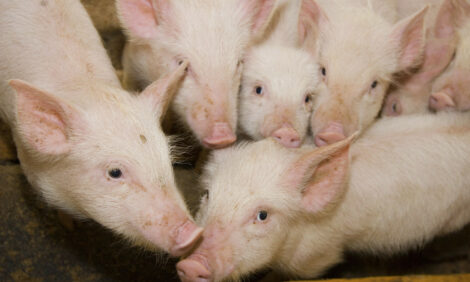



African swine fever: Regulatory implications in North America
A good regulatory framework can help prevent the entry and dissemination of African swine feverEditor's note: This article is based on an African swine fever webinar presented in January 2023, copyrighted under the terms of an agreement between Informa Markets and the University of Minnesota. The individual speakers are solely responsible for their content and opinions.
Dr. Maria Celia Antognoli is a veterinarian and Swine Health Senior Staff Officer, USDA APHIS, and has been assigned to the Dominican Republic since September 2022. She said one of the most important lessons of the African swine fever (ASF) outbreak in the Dominican Republic is that prevention is key. Once the disease enters the country the likelihood of controlling it is reduced and the challenges are huge.
Border biosecurity and biocontainment are critical. A country needs to have good screening of travelers to prevent the introduction of illegal products that may contact susceptible swine, said Antognoli.
She emphasized that a good regulatory framework is needed to allow a country to deal with the confiscation of illegal products. There must be penalties associated with the attempted introduction of contaminated products.
“It's not sufficient to have the intention, but you have to have a regulatory framework that would actually allow you to act on it,” she said.
A country must also be able to deal with the confiscated material. Proper handling of risk garbage is a key component needed in ports of entry, noted Antognoli.
“I keep emphasizing the need for a regulatory framework that would allow you to act because this is something that we're seeing here as a weakness,” she said.
Most countries do have a regulatory framework, but it's either not specific enough or nimble enough to be able to act in a timely manner. A country needs to have capable veterinary services, with sufficient staff and infrastructure to allow it to contain any disease introduction quickly through movement controls and field response, she added.
Training Needed
“There's never enough emphasis on the need to provide training and refresher training on how to deal with suspect case investigations, with a submission of the correct samples to the laboratory and having the appropriate diagnostic capacity and diagnostic tools available for such a response,” Antognoli said.
“I know that even in the US, we don't have everything 100% in place. We need to make sure that our regulatory system is nimble, that our biosecurity and biocontainment is optimal and that our diagnostic capacity and our response capacity are in optimal condition,” she explained.
Global coordination
Gregorio Torres is the Head of the Science Department for the World Organization for Animal Health (WOAH). He said that like any other global disease strategy, regular monitoring and evaluation is needed. Strategies need to evolve as the disease evolves, and ASF has evolved. These strategies might not be evolving as fast as the disease is, so there is a need to maintain a high degree of communication among the different parties at the global level, he noted.
There are global initiatives for coordinating activities at the government level, but the private sector also needs to be involved. Veterinarians must be able to identify the disease, but so must the farm workers that have daily contact with the pigs, said Torres.
“We do need to be transparent, we do need to share data. Without sharing this information, we will not be able to react quickly. It is a global problem and needs global action. Capability, capacity, transparency and good core coordination and cooperation among key actors needs to be reviewed on a regular basis to make sure we [have] the right approach,” Torres concluded.
Keep ASF out
Gordon Spronk, the co-founder of Pipestone Veterinary Services in Minnesota, USA, said, “the big challenge for the US and North America is to educate and understand the very, very important unique value proposition that we have, because we do not have this virus.”
The biggest value is to keep it out and keep that status, he added. The most pressing issue regarding ASF is for the industry to understand that ASF is a transboundary disease, which automatically means it's a regulatory disease, he noted.
Spronk mentioned that ASF is 100 years old, but the concerns in the US market started in 2018 when ASF broke out in China. Those concerns grew when ASF got into the Dominican Republic in 2021. The moving of ASF closer to the US increased the awareness, but the “fatigue factor of constant alerts, checking your biosecurity since 2018 gets to be a little bit like radio noise in the background, like the static from the radio, where pretty soon I just tune it out,” he said.
“I think it's very important for our industry to educate themselves on the value of keeping it out,” said Spronk.
Currently in Europe, Denmark, Poland and Germany have different approaches to ASF. Denmark is free of ASF and continues to trade and export. Germany and Poland, meanwhile, have lost their export markets. Poland has regionalized and Germany has ASF in the wild pig population, he concluded.







